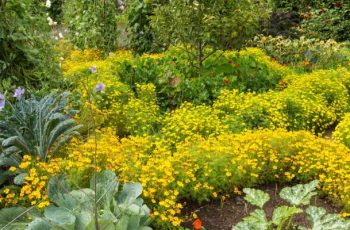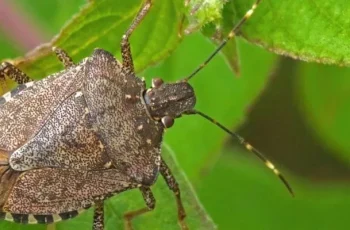The vibrant tapestry of a thriving garden hinges on the health and vitality of its soil. Deprived of essential nutrients, even the most promising seedlings will falter, yields will diminish, and plants will become vulnerable to the relentless onslaught of pests and diseases. While the allure of commercially produced fertilizers is undeniable, their hefty price tags and synthetic origins often deter budget-conscious and environmentally aware gardeners. Fortunately, nature provides a wealth of readily available, cost-effective, and often free alternatives to enrich your soil and foster robust plant growth. By embracing these sustainable practices, you can cultivate a flourishing garden without breaking the bank or compromising the health of your ecosystem.

Unleashing the Nutritional Power of Kitchen Scraps
The kitchen, often viewed as a source of waste, can be a treasure trove of plant-boosting nutrients. Instead of consigning food remnants to the landfill, consider their potential to revitalize your garden beds.
Banana Peels: These seemingly insignificant peels are a powerhouse of potassium and phosphorus, two vital elements for strong root development and abundant flower and fruit production. Simply chop the peels into smaller pieces and bury them near the base of your plants for a slow and steady release of these essential nutrients.
Eggshells: The brittle remnants of your breakfast eggs are rich in calcium carbonate, a valuable amendment that helps prevent calcium deficiencies in plants like tomatoes, notorious for developing blossom-end rot. Crushing the eggshells into a fine powder also creates a natural deterrent against soft-bodied pests such as slugs and snails.
Coffee Grounds: For those who enjoy a daily brew, the spent coffee grounds offer a nitrogen-rich boost to the soil. They also improve soil structure, enhance water retention, and are particularly beneficial for acid-loving plants like roses, azaleas, and blueberries. Remember to use them in moderation, as excessive amounts can be detrimental.
Vegetable Scraps: The peelings, cores, and other leftover vegetable parts can be transformed into a nourishing liquid fertilizer. Simply blend these scraps with water and allow the mixture to steep for a day or two. This “vegetable tea” is packed with readily available nutrients that can be poured around the base of your plants.
Harnessing the Age-Old Benefits of Manure
Animal manure, a time-honored soil amendment, is a potent source of essential nutrients and beneficial microorganisms. When properly composted, it significantly improves soil structure, water retention, and overall fertility.
Cow and Horse Manure: These readily available manures offer a balanced blend of nitrogen, phosphorus, and potassium, making them suitable for a wide range of garden plants. It is crucial to age or compost these manures before application to prevent “root burn” caused by excessive nitrogen and to eliminate any harmful pathogens.
Chicken Manure: Known for its high nitrogen content, chicken manure is particularly beneficial for leafy green vegetables. However, its potency necessitates thorough composting to mitigate its strong acidity and prevent damage to plant roots.
Rabbit Manure: Unlike many other types of manure, rabbit droppings can be applied directly to the garden. They decompose relatively quickly and are less likely to burn plant roots, providing a gentle and consistent release of nutrients.
Recycling Yard Waste for Soil Enrichment
The seemingly endless cycle of lawn mowing and leaf fall presents an opportunity to enrich your garden naturally.
Grass Clippings: Freshly cut grass clippings decompose rapidly, releasing valuable nitrogen back into the soil. They can be used as a mulch around plants, suppressing weeds and conserving moisture, or incorporated into your compost pile to accelerate nutrient breakdown.
Fallen Leaves: Shredded leaves act as an excellent soil conditioner, improving soil structure, enhancing moisture retention, and fostering the growth of beneficial soil microbes. They can be used as a mulch or added to the compost bin.
Weeds (Before Seeding): Non-invasive weeds, harvested before they set seed, can be a valuable addition to your compost pile, returning the nutrients they absorbed from the soil. However, diligently avoid composting weeds with mature seeds to prevent their unwanted proliferation in your garden.
The Protective Benefits of Mulch
Mulching, the practice of covering the soil surface with organic materials, offers numerous benefits beyond fertilization.
Straw and Hay: These organic mulches help conserve soil moisture, suppress weed growth, and gradually decompose, adding organic matter to the soil.
Wood Chips: Ideal for perennial gardens, wood chips improve soil structure and enhance moisture retention over the long term.
Pine Needles: These create an acidic mulch, benefiting plants that prefer lower pH conditions, such as blueberries and rhododendrons.
Alternative Natural Fertilizers for Specific Needs
Certain unconventional materials can address specific gardening requirements.
Epsom Salt: A source of magnesium sulfate, Epsom salt can help plants absorb nutrients more efficiently.
Molasses: When diluted with water, molasses can stimulate beneficial microbial activity in the soil.
Cornmeal: This organic material can encourage the growth of beneficial fungi that help suppress soilborne diseases.

Conclusion: Embracing Nature’s Bounty
Cultivating a thriving garden doesn’t necessitate expensive synthetic fertilizers. By embracing the abundance of natural resources available – from kitchen scraps and yard waste to animal manure and even the bounty of the sea – gardeners can create nutrient-rich soil that fosters healthy plant growth and abundant harvests. These sustainable fertilization methods not only save money but also contribute to a more environmentally responsible and rewarding gardening experience. The path to a flourishing garden lies not in costly chemicals, but in understanding and harnessing the inherent power of nature’s own fertilizers.

